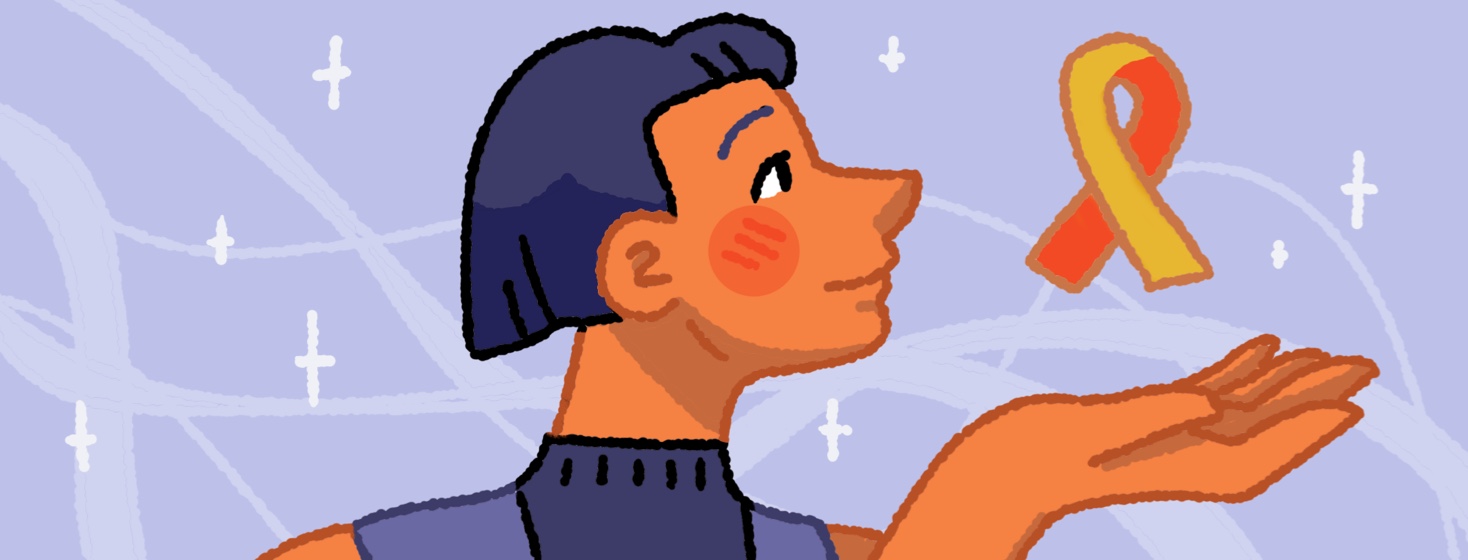Navigating Post-Cure Advocacy
I have been thinking a lot about something lately. I’ve been wracking my brain, trying to understand not only how I feel about advocacy, but what it looks like for me moving forward.
What concerns do I have about moving forward? I've considered many aspects and approaches. Unfortunately, my conclusion is this: there is no easy or decisive answer to my questions. Post-cure advocacy is the “what.” When it comes to the “when, why, or how,” that’s the tricky part.
I have been "cured" of hep C for five years now. I attained sustained virologic response after a twelve-week course of Epclusa. In its generic and wordy form, it is a combination of the direct-acting antiviral medications sofosbuvir and velpatasvir. My experiences leading up to being cured had been one of two things: unremarkable or traumatic. There was no in-between.
Post-treatment advocacy work
About a year after my treatment, I began working in hep C health navigation and advocacy.
I admittedly did not know much about hep C before I started. I immersed myself in learning about things I felt would be critical to successful performance in my job.
I recorded the hours I spent in self-directed learning, evening impressing myself.
I learned anatomy, virology, transmission, prevention, socioeconomic barriers and history, current treatments and how to access them, technological and medical advancements and innovations, current local availability, and then about policy and legislation governing all of that.
The primary purpose of my role was to work with people from highly marginalized parts of society. This is combined with a specific focus on providing proper hep C education while holding a supportive role in helping them identify and meet their health and wellness goals.
Despite things happening around me that I found disagreeable, I enjoyed the job immensely. Despite no longer being considered as having a "living" experience of hep C, I was able to use my "lived" experience to be of service to others.
Much to my annoyance, I am not one of those "entirely self-made," super "never needed luck, help, or hard work" people. I have had the help, guidance, and patience of many wonderful, intelligent and pivotal people who have come in and out of my life over the years.
My next adventure would be no different.
Helping those who are marginzalized
When my time representing the above agency ended, I was gratefully able to continue working in the field of hep C advocacy for another several months, this time, on a larger scale. Instead of a whole city, now it was the whole province.
Here, I watched and studied the methods and behaviors of how some very smart people attacked big problems in advocacy, diplomacy, and socioeconomic well-being. I learned to fine-tune my advocacy and practice mindfulness in my work. I learned to be more conscientious of my messages.
Everything we did was with the primary purpose of helping people with hep C and other marginalized groups have better health and socioeconomic outcomes.
Unfortunately, Covid-19 was happening at the same time as all of this. Accessing funding for hep C became trickier than ever before.
The more Covid-19 raged on, the more job insecurity for many support workers and frontline social and community care did, too. Sadly, I was not left unscathed by Covid layoffs, and my time with this organization ended.
As time has passed and my career has taken yet another unexpected path, I have been reflecting on how to best advocate from my current position.
When I actively worked in the field of "all things hep C," it was easy to advocate still. I knew the current stage.
Where I sit now looks quite different. I am several years post-cure. My current endeavors leave less time for hep C-focused advocacy in my community or online.
However, when something impacts your life so seriously for so long, it is hard to just "let it go." Not that I would, anyways.
So I’ve concluded that, like everything else in life, my hep C advocacy had to adapt. I may not play as active a role as I once did, but I still do many things in those same communities.
I volunteer my time harvesting fruits and vegetables for a local community-based organization that provides this food to other organizations and individuals who are hungry. Many of them are the same individuals I worked with who had or have a living experience of the hepatitis C virus.
That, and I write. I try to stay current on research and trends relating to many aspects of hep C. I do this to try and keep my writing relevant.
Although how I practice my advocacy has had to change and adapt, the desire to be of service has not.
That, I hope, never changes.

Join the conversation